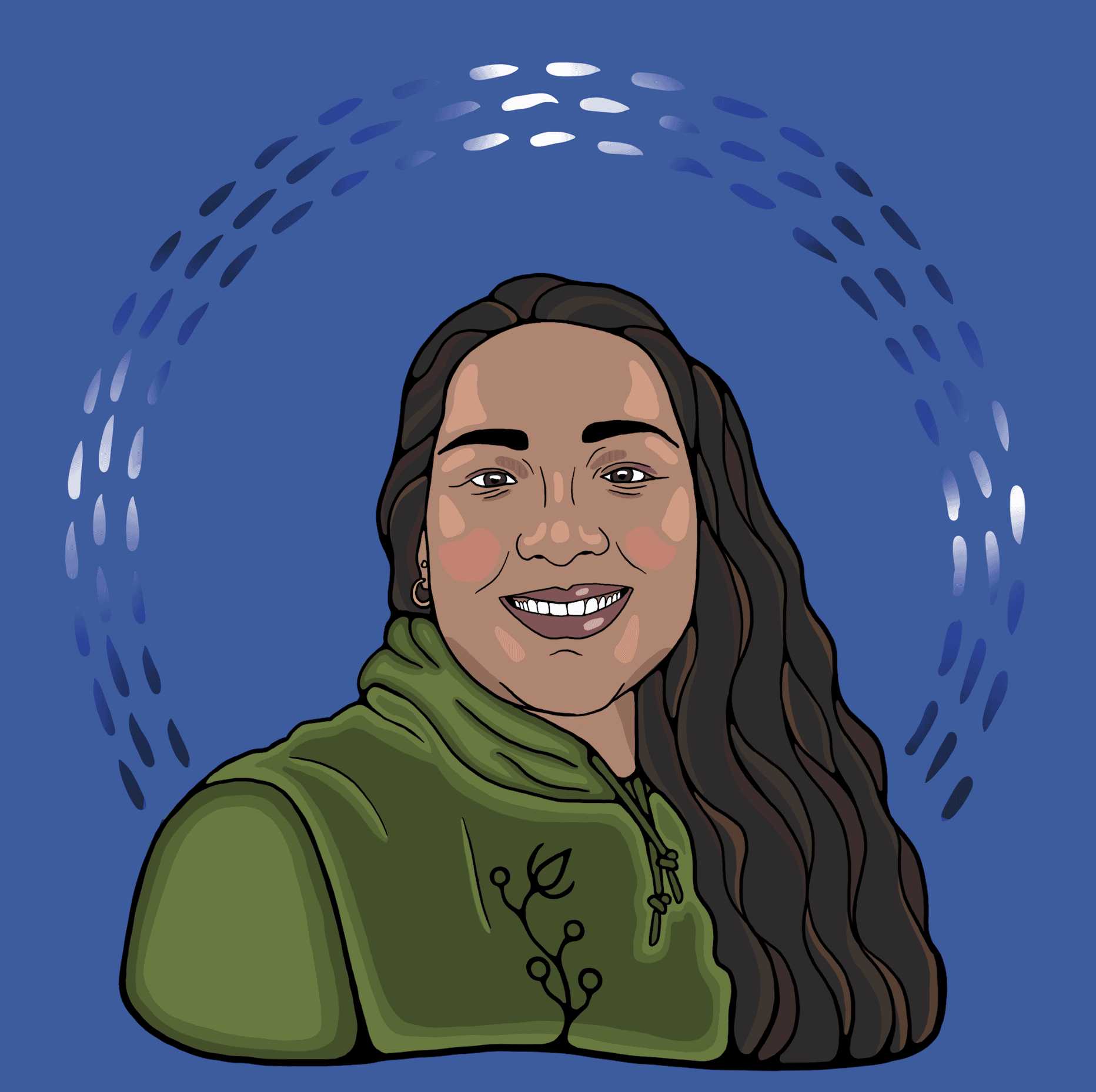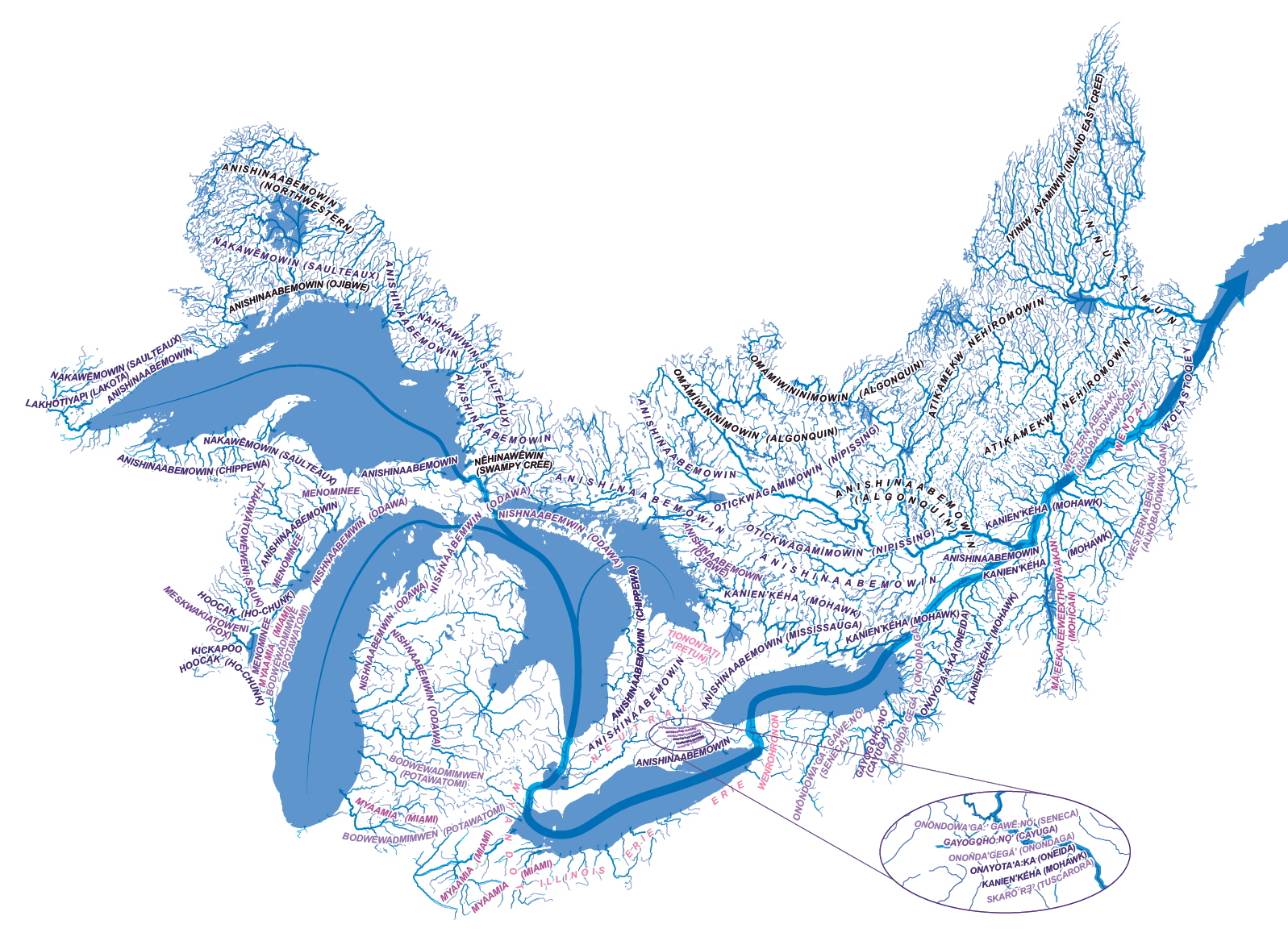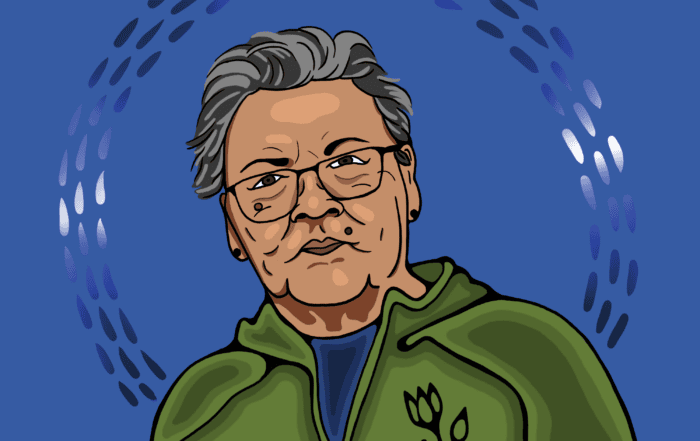
Portrait of Uapukun Mestokosho by Miskwaa Designs.
My mother, Rita Mestokosho, said: “All the words of the Earth and especially of the territory carry a history, a time or an era, and the Innu.” Innu-aimun comes from the territory, and if we want to protect our territory, we need to learn our language. It’s important to keep practising and keep speaking Innu because there is a danger of losing the language.
On words for water, and other things, in Innu-aimun
Nutshimit. When we say Nutshimit, it means “on the territory.” When we say we go to Nutshimit — we go to Nitassinan (the land). It means “where my blood comes from.”
We don’t have a word for thank you but we say Tshiniskumitin. But we need to break down the word to understand the full meaning of it. It means – I give you a goose!
Maybe in the past, to thank somebody, they would give them food, so they would have food to share. Innu-aimun, like all indigenous languages, is kind of poetic.
On speaking the language and being in connection with the land
Speaking Innu makes me feel closer to my ancestors. It makes me feel closer to my land and I am very proud to be Innu and to speak in Innu-aimun. When I hear a non-indigenous person speak the language, it brings me hope.
Innu means human — and so it must be a human teaching. It’s not just about the Innu language; it’s about healing, it’s about keeping our tradition, it’s going to the territory, the land. It’s all connected. I have been in contact with nature since I was born. I love water — I have always bathed in the river. With my grandparents, during the fall, all the grandchildren went camping every weekend to hunt migratory birds. We live close to nature, in connection with it.
On a cultural teaching and water
We lost a lot of cultural teachings, but I learned from my travels that water is what we are born from. We came from water. And without water, we wouldn’t be here and there would be no life.
Water is something that heals me. That’s how I see it; that’s how I feel it. Whenever I am near the water, the rivers or the sea, I feel good, I feel hopeful and I forget about everything that’s happening in the world; I just live in the here and now.
On the answers being on the land
I like to say that my community, Ekuanitshit, is almost an island because we have the river on one side and the sea on the other side. Maybe, if the water continues to rise, it will be one day.
All the answers are there on the land, and I dream about going there and doing what my ancestors did. I want to be nomadic, and I want to see every river and be near the caribou. I want to live that kind of life — and maybe that will be the answer to climate change too.

Original languages of Great Lakes.- St. Lawrence watershed. Map by Chris Brackley.



